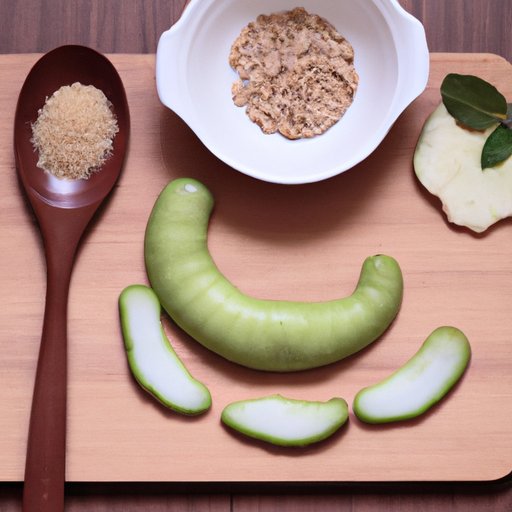
I. Introduction
Keeping our digestive system healthy is crucial for our overall wellbeing. Our stomach and intestines play a significant role in the absorption of important nutrients and elimination of waste from our body. In this article, we will look at some natural ways to clean our stomach and intestines, ensuring that our digestive system is functioning at its best.
II. Incorporating High-Fiber Foods
High-fiber foods are essential for healthy digestion. They promote regular bowel movements, prevent constipation, and reduce the risk of various digestive ailments. Foods rich in fiber include fruits, vegetables, whole grains, and legumes. Some examples of high-fiber foods are berries, avocado, broccoli, oats, and lentils. Try incorporating these foods into your daily meals by adding them to salads, making smoothies, or including them in your morning oatmeal.
III. Drinking Plenty of Water
Drinking enough water is essential for maintaining healthy digestion. Water helps flush out toxins from our body and aids in the digestion and absorption of nutrients. Experts suggest drinking at least eight 8-ounce glasses of water each day. However, this amount may differ based on factors such as your weight, activity level, and the climate. If you find it challenging to drink water throughout the day, try carrying a water bottle with you or infusing your water with lemon or cucumber for added flavor.
IV. Adding Probiotic-Rich Foods or Supplements
Probiotics are beneficial bacteria that reside in our gut and promote good digestive health. Including probiotic-rich foods in our diet or taking probiotic supplements can help maintain a balance of good bacteria in our gut. Some examples of probiotic-rich foods are yogurt, kefir, sauerkraut, and kimchi. If you are looking for a supplement, choose a reputable brand and take it regularly to see optimal results.
V. Practicing Intermittent Fasting
Intermittent fasting is an eating pattern in which you alternate between periods of fasting and non-fasting. This can have significant benefits for our digestive health, such as improved metabolism, reduced inflammation, and enhanced gut health. To practice intermittent fasting, you may choose a specific window of time for your eating period, for example, skipping breakfast and eating all your meals between 12 p.m. to 8 p.m. However, you should consult with your doctor if you have any medical conditions before trying intermittent fasting.
VI. Engaging in Regular Physical Activity
Regular physical activity can enhance digestion by stimulating the muscles in your digestive system and reducing stress levels. Exercise can also improve bowel movements and reduce the likelihood of constipation. There are many forms of exercise, such as walking, running, swimming, and yoga. Choose an activity that you enjoy and make it a part of your routine. Experts recommend aiming for at least 30 minutes of physical activity most days of the week.
VII. Trying Natural Remedies
There are many natural remedies available that can help clean our stomach and intestines. Ginger tea is known for its anti-inflammatory properties and can help alleviate digestive issues such as nausea and bloating. Apple cider vinegar can also aid digestion by increasing stomach acid production and promoting healthy gut bacteria. However, it’s important to use these remedies in moderation and consult with your doctor before trying any new remedies, especially if you are taking medication or have medical conditions.
VIII. Conclusion
Keeping our digestive system healthy is essential for our overall health and wellbeing. By incorporating high-fiber foods, drinking plenty of water, adding probiotic-rich foods or supplements, practicing intermittent fasting, engaging in regular physical activity, and trying natural remedies, we can maintain a healthy digestive system. Remember to consult with a doctor before trying any new remedies or making significant changes to your diet or exercise routine. By making these small changes, you can help keep your gut healthy and thriving for years to come.





